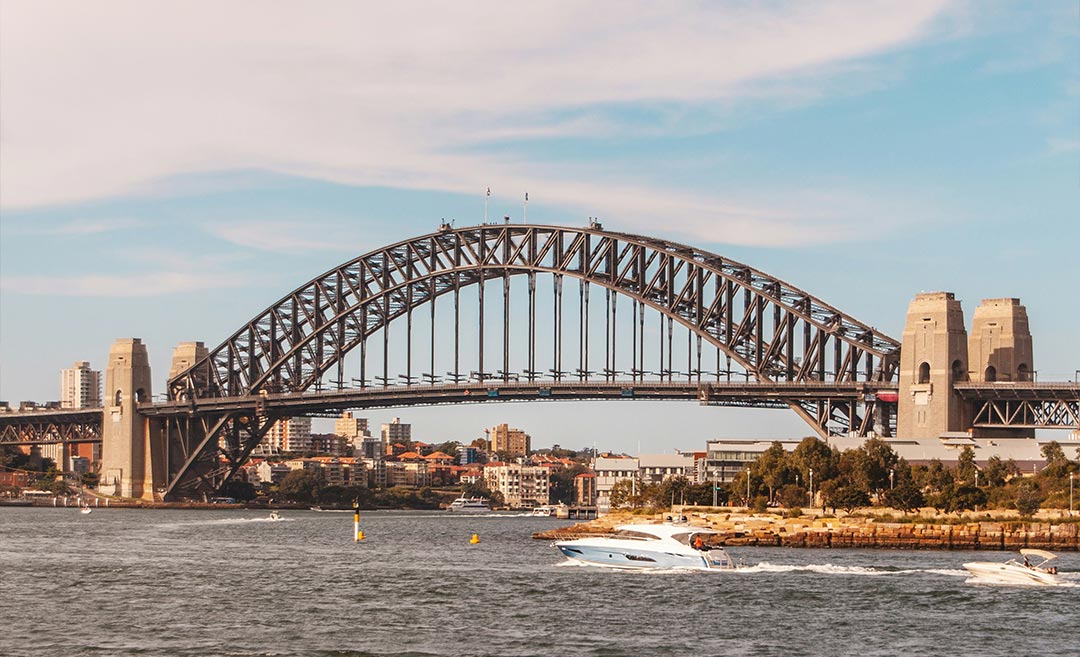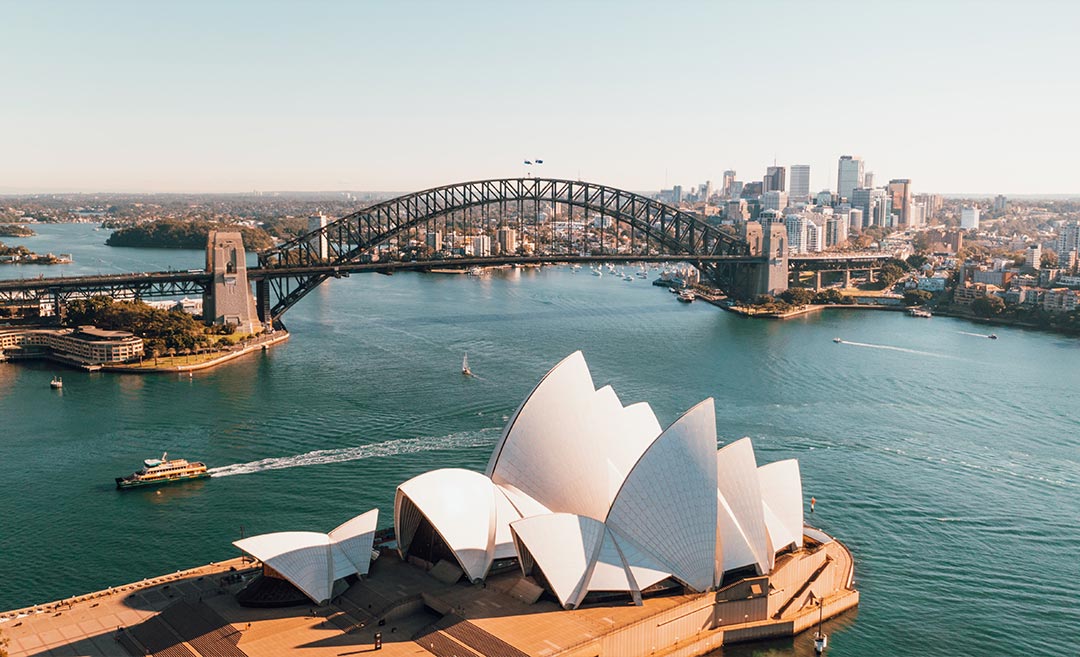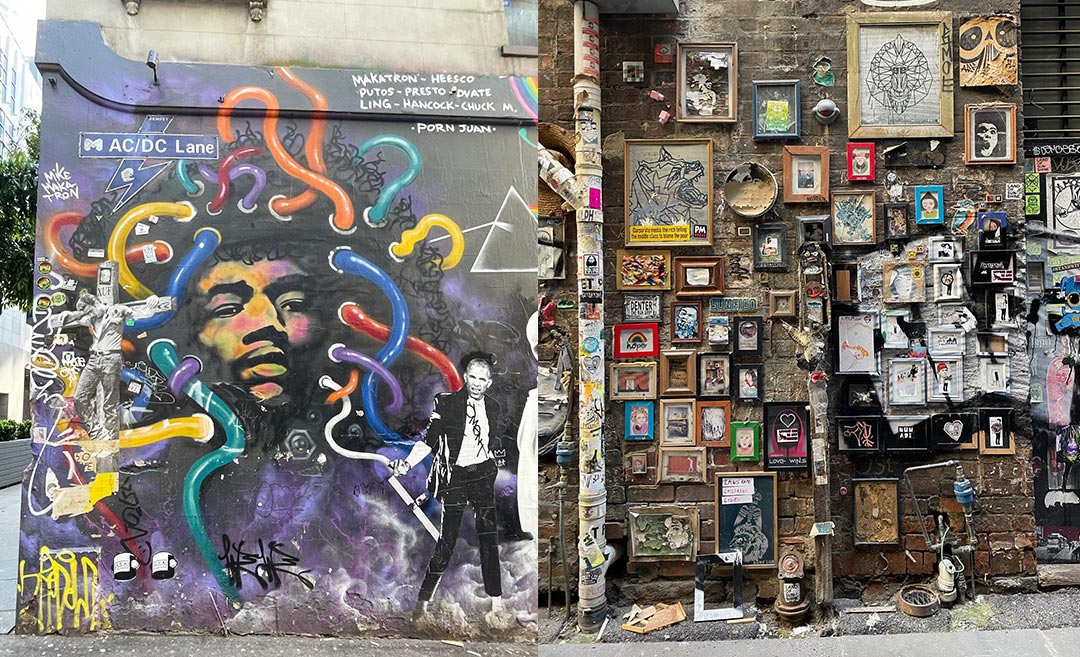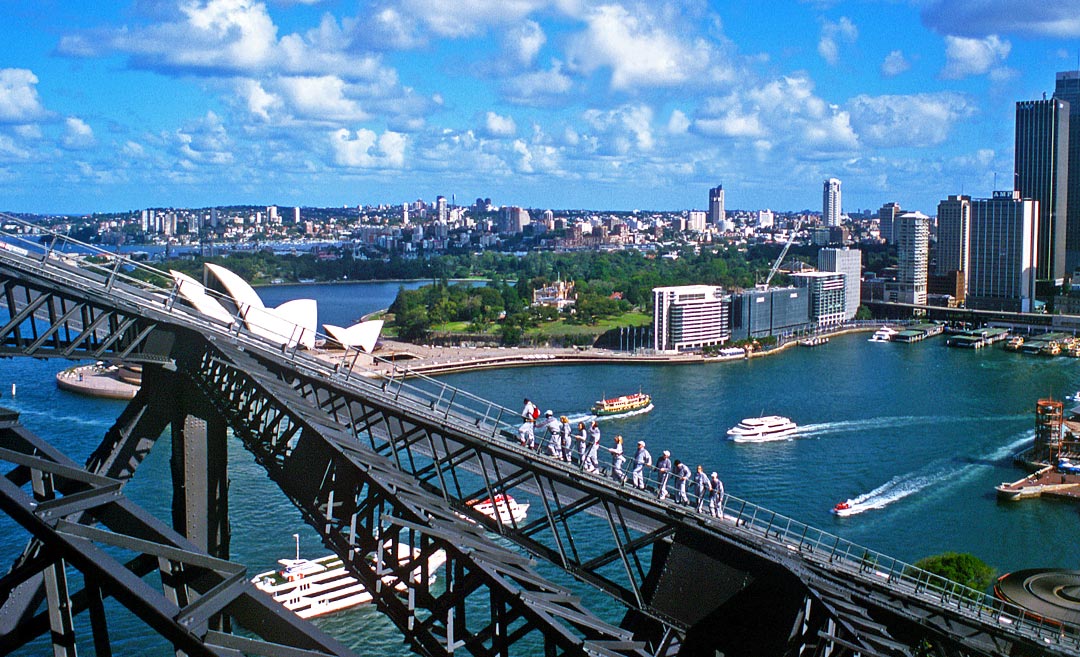The Sydney Opera House and the Harbour Bridge are the two iconic landmarks Tourism Australia has successfully used to lure tourists to Australia’s largest city. Both are within walking distance of each other in a harbourside area that connects the Rocks, Circular Quay, and Darling Harbour.
A little bit of history
In 1788, the First Fleet sailed from England and arrived in Sydney Harbour. A settlement was established on its southern shores near where the Sydney Harbour Bridge now stands.
The first settlers discovered a deep and safe cove, into which flowed a freshwater stream that they named the Tank Stream. While the stream still flows below the city, the urban maze now obscures any trace of it.
The First Fleet included convicts banished from England, mostly for petty crimes, plus naval officers, sailors, wives, and family members totalling 1,300. The remote British outpost they named Sydney developed into the New South Wales capital.
Interestingly, the French were contemplating a similar move, with mariner and explorer Lapérouse scoping this part of Australia at the same time. The English persevered, and now little remains of the French apart from a Sydney suburb named La Perouse. Had the French succeeded, perhaps visitors to Sydney would have been greeted with ‘Bonjour mate’ rather than ‘G’Day mate’.
Heritage pubs, churches, and tours
The area immediately below the southern pylon of the Harbour Bridge is known as the Rocks, presumably after its once rocky foreshore. Many historic landmarks have been faithfully restored, and the area is now one of Sydney’s most visited destinations.
In the late 1960s, the Rocks had become an eyesore, and many people avoided it. However, its prime location captured the attention of developers with plans to replace the old buildings with skyscrapers. Had these developers had their way, much of the Rocks would have been demolished, and office blocks would have been erected along streets lined with terrace houses. Bitter protests were staged until a heritage order was put in place to preserve the historic buildings both here and at Miller’s Point.
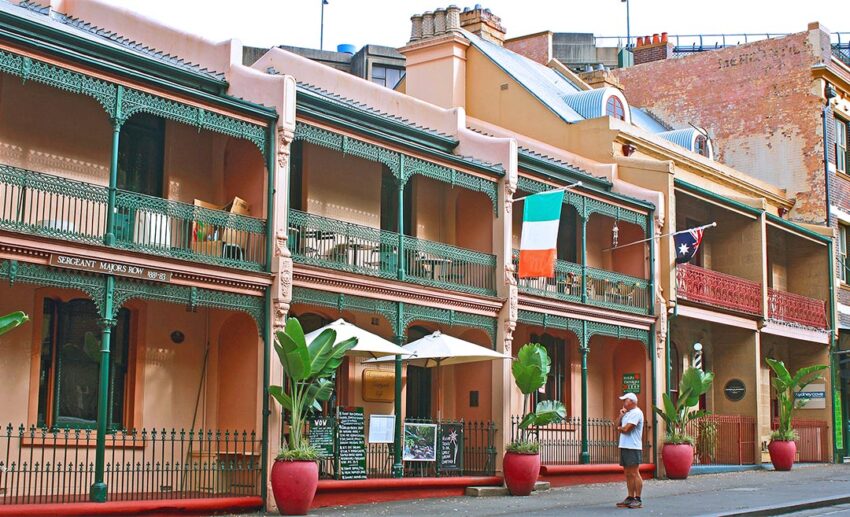
Between the skirmishes, protesters regrouped in quaint pubs, and they were some of the first buildings to be saved. Atmospheric pubs like Lord Nelson, Australian, Observer, The Glenmore, Orient, and Hero of Waterloo have withstood the test of time and remain iconic Aussie pubs serving refreshing beverages and enticing pub grub.
Miller’s Point, separated from the Rocks by the overhead roadway leading to Sydney Harbour Bridge, has been retained as a residential precinct to provide a more tranquil contrast to the bustling entertainment and commercial zones within the Rocks.
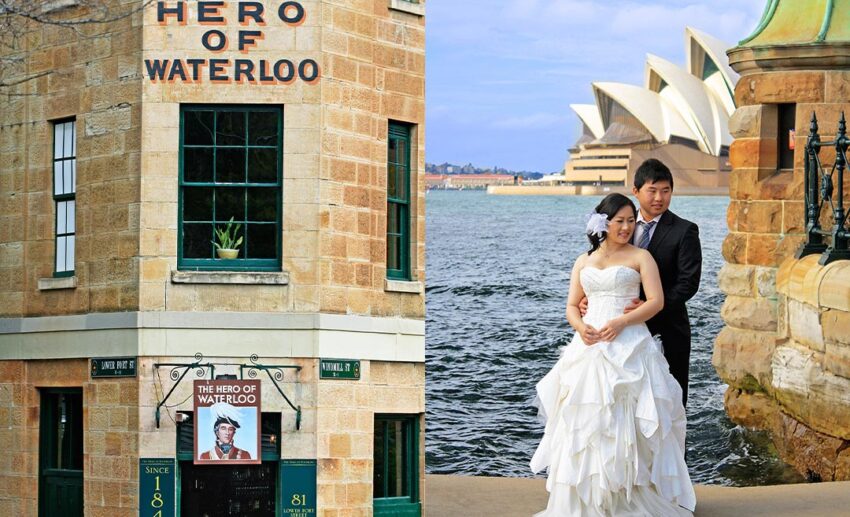
Heritage protection has not just focused on old pubs, with the Church of the Holy Trinity, best known as the Garrison Church, being a much-visited site and a venue for weddings. Many bridal parties choose to have their wedding photographs taken in the Rocks.
There are several walking tours of the Rocks, often with free morning and afternoon departures. For something out of this world, a Rocks Ghost Tour in the evening provides a chilling insight into many unexplained events of the past.
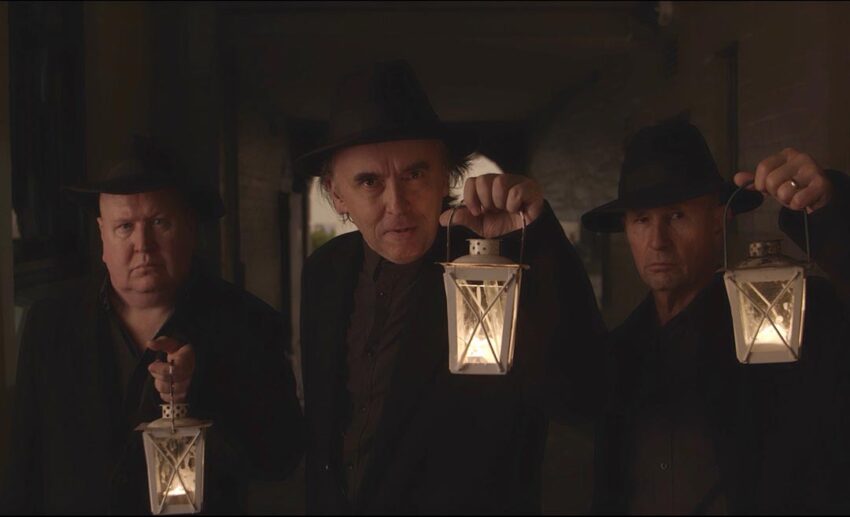
On the weekends, streetside markets provide quirky Australian goods and produce to eager market-goers.
Arts and action at Circular Quay
Close to the Rocks, thousands of commuters disembark at Circular Quay from the ferries that operate on the harbour. They arrive in a variety of vessels, while others travel here by rail, tram, or water taxi. Circular Quay is a hive of activity with buskers, musicians, and artists, as well as those out for a stroll. Families and tourists are joined by theatregoers in the evenings, making their way to the Opera House to be entertained by the world’s finest artists.
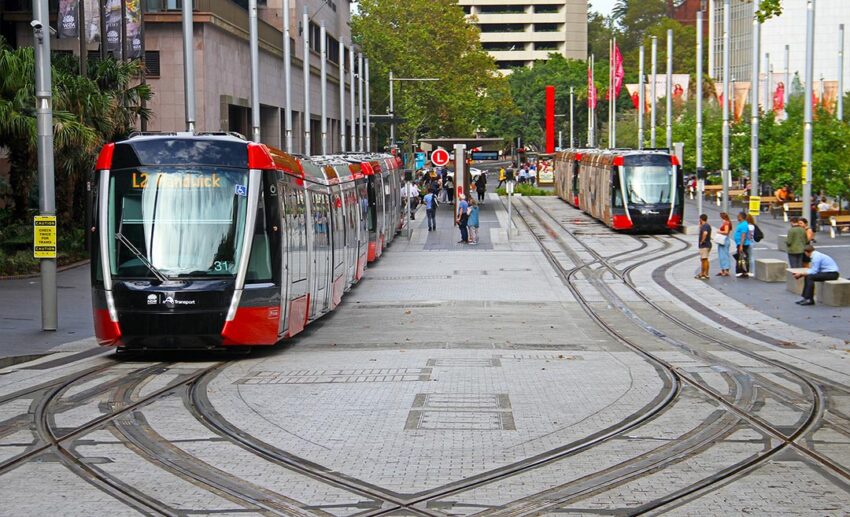
The Museum of Contemporary Art is undoubtedly one of the world’s best-positioned art galleries. Artwork is displayed in this grand old sandstone building, once home to the Maritime Services Board. Famous works by Lichtenstein and Warhol are displayed alongside the best local contemporary artists.
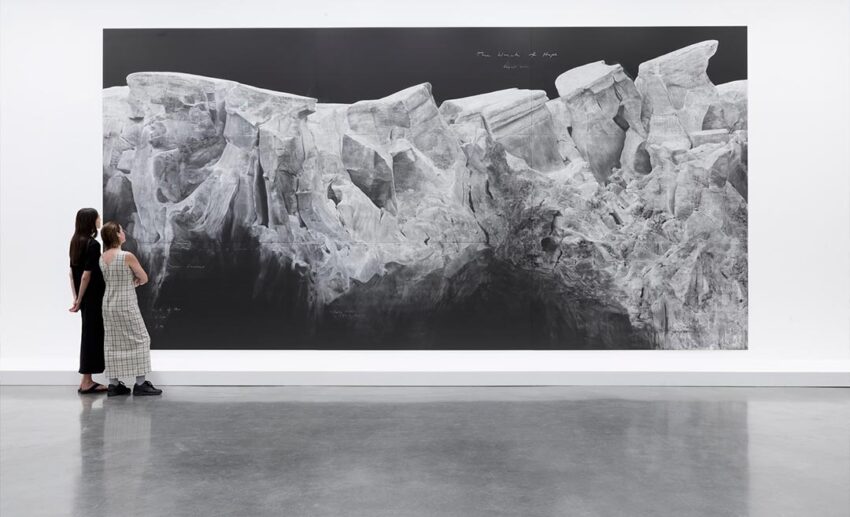
This part of the city is lively, with diners and pub patrons every night. If you have the budget, some of Sydney’s finest restaurants are located here, with Aria and Quay at the Overseas Passenger Terminal being two of the finest.
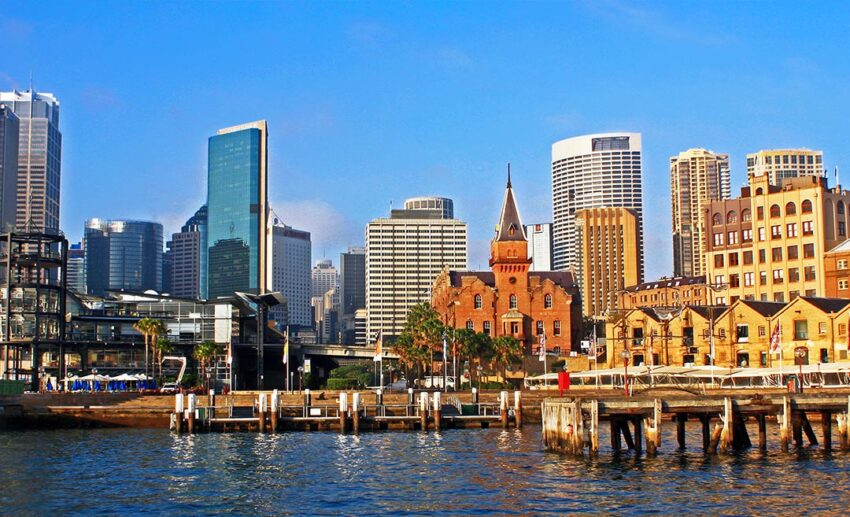
Wildlife and culture at Darling Harbour
Catch a ferry from Circular Quay past several finger wharves, the Barangaroo Reserve, and into Darling Harbour to enjoy various precincts, including King Street Wharf and Cockle Bay Wharf, lined with restaurants, bars, and apartments.
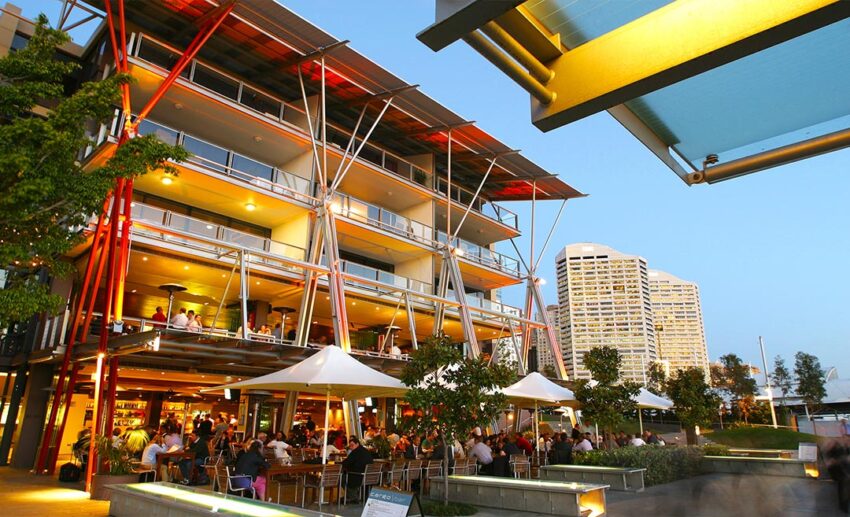
Visitors could spend a day exploring Darling Harbour while enjoying an introduction to Australian wildlife, culture, and way of life. The Australian National Maritime Museum has several old boats to explore, including a naval vessel, a submarine, a floating lighthouse, and heritage sailing ships. On the opposite bank are the SEA LIFE Sydney Aquarium, WILD LIFE Sydney Zoo, and Madame Tussauds.
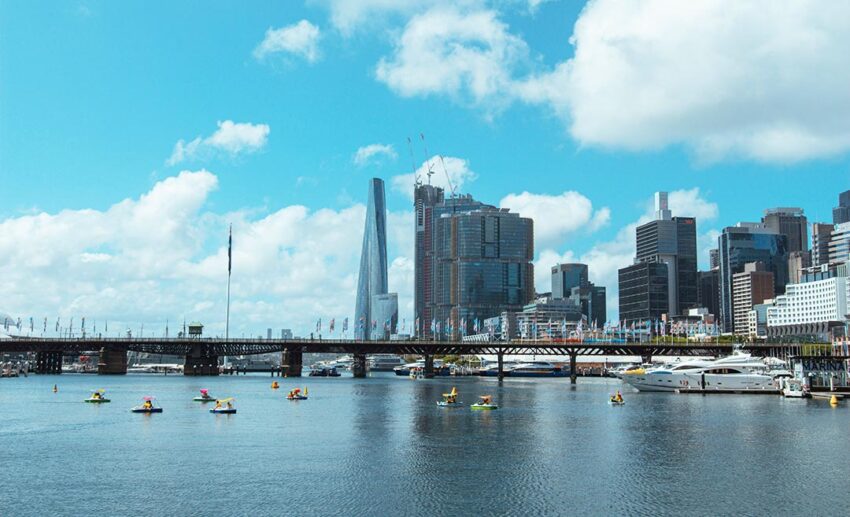
Rooms with harbour vistas
Most visitors to Sydney agree that the harbour is one of the world’s most spectacular stretches of water. Many hotels vie for a location as close to the harbour as possible. A boutique property right in the Rocks is the Russell Hotel, which is perfect for those who like to be close to all the action.
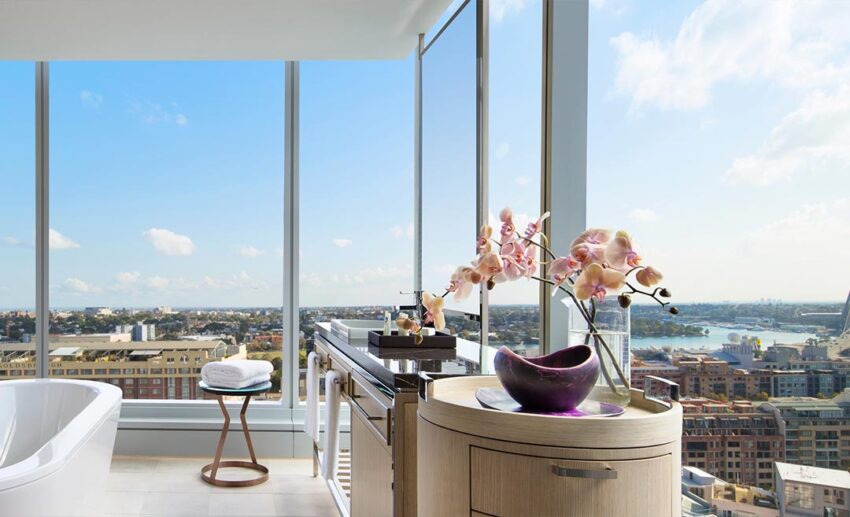
In Darling Harbour, the finest property with impressive views and sophisticated services and facilities is the Sofitel Sydney Darling Harbour. It is one of Sydney’s best five-star luxury hotels that features French flair and Australian friendliness. Club Millésime, the club lounge on the 35th floor, is the perfect venue for those who enjoy privacy and little extras, such as evening canapés and a glass or two of wine from an excellent selection.
Tips for a Sydney Harbour holiday
Flying: AirAsiaX flies directly to Sydney and offers a variety of seating, including flatbeds, for a great night’s rest before arriving.
Recommended places to stay: Sofitel Sydney Darling Harbour or The Russell Boutique Hotel
Getting about: Walking around the Rocks, Circular Quay, and Darling Harbour is best done on foot to identify the details in the city’s historic fabric. Big Bus offers a hop-on, hop-off arrangement that has two different loops, with the ‘red route’ covering all three areas. It also includes a complimentary Rocks walking tour at 11am and 1pm.
Public transport: Using public transport is also recommended, but to do so, you have to buy an Opal Card (pre-loaded value smartcard). This card is required to travel on ferries, trams, light rail, buses and trains.
Useful resources: NSW Tourism and Tourism Australia.
*Images are by David Bowden unless stated otherwise.

